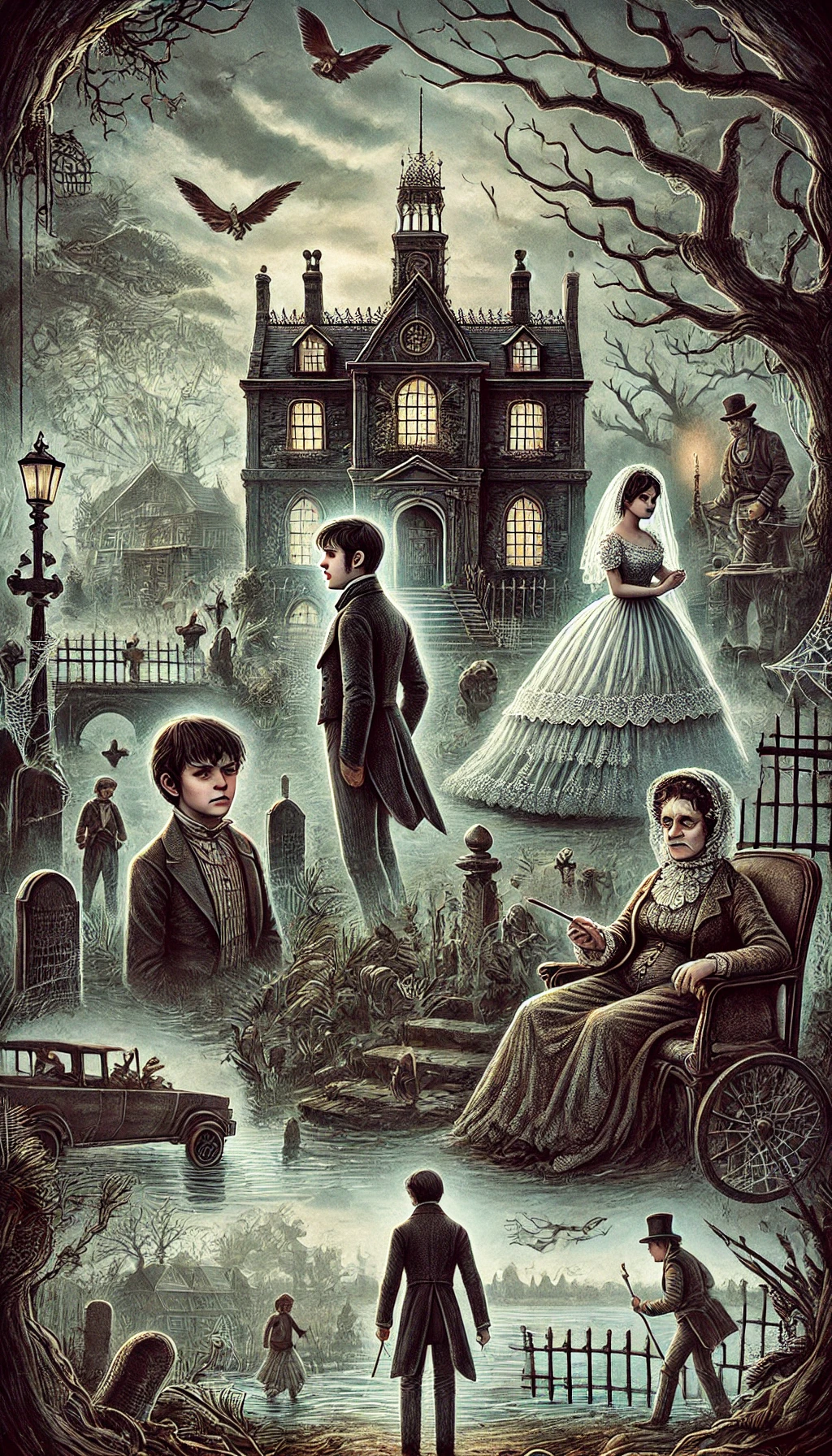Password Incorrect by Nick Name, published in 2008, is a collection of satirical short stories that explore the quirks of technology-driven modern life. The author, with a comedic touch, illustrates the often absurd ways in which humans interact with technology, while also examining the foibles of human nature itself. These stories focus on topics ranging from forgotten passwords and mobile phones to bizarre business ideas, mixing humor with light social critique.
Plot Summary
Peter Maria of Tschekan stood in his office, fingers gliding across the screen of his latest treasure—his 25th-generation cell phone. It wasn’t just any phone. This was the pinnacle of human achievement, a Siemens-BenQ-Nokia-LG ABC 123, and Peter had spent two weeks meticulously entering every shred of personal data into it. His phone knew him better than any friend, lover, or family member ever could. It held his passwords, his PINs, his favorite movies, his bank account numbers, and even the ancestral silver he’d never seen but liked to brag about. The device became his confidante, more valuable to him than any painting or luxury he could possess. It was secured with a password—*****—a simple safeguard for something that had become more precious than his identity.
But then, a scratch. A tiny one, barely noticeable, yet it gnawed at Peter’s mind for days. Desperate to escape the frenzy in his head, he booked a flight to Nepal on a whim, seeking peace in the mountains. He left the phone behind, locked safely in an airport locker to avoid any more damage. But upon returning three months later, calm and rejuvenated, Peter was met with a catastrophe. He couldn’t remember the password. It had slipped his mind like the name of a forgotten lover. He tried, over and over again, cycling through five-letter combinations, his anxiety mounting with each failed attempt. In time, Peter wandered the city parks, muttering strings of random words to himself. His name, his life, dissolved into the abyss of lost data.
Elsewhere, Sławek Przekośniak had been having a decidedly different experience. One evening, a cryptic SMS arrived on his phone: “Wishing yo good ping super new.” It was gibberish, but somehow, it sparked an idea. Sławek, with the help of his friend Czesiek Ciąg, developed a groundbreaking service—random, nonsensical SMS greetings generated by a software program. The world didn’t know it wanted messages like “Egg cattle merry wedged marvelous,” but it did. The service exploded in popularity, sending Sławek and Czesiek on a dizzying rise to wealth. Ramona Kąstowicz, a famous pop star, was one of their first clients, showering her friends with absurd, algorithm-generated well-wishes. The chaos of words became a trend, and within months, Sławek found himself on the list of the wealthiest Poles. However, success came at a cost. Sławek grew suspicious of his friend’s loyalty and ultimately betrayed him with a cold, cryptic message: “You work here not easy kaput finito.” His meteoric rise continued, but so did his detachment from those around him, the nonsense messages reflecting his hollow inner life.
Christopher Warm, known by his colleagues as “Office Desk,” was a man of routine. Each day, he sat at his desk, typing away at computer programs, quietly ignored by those around him. Then one day, an odd thing happened—he fused to his chair. Literally. The long hours, the sedentary lifestyle, it all became too much, and when he tried to stand, his body remained stuck. His colleagues found it amusing at first, nicknaming him “A Man Called Chair,” but Christopher didn’t find it funny. It complicated everything, especially his personal life. His girlfriend, Julia, was already displeased with his lack of attention, but the addition of a chair to their relationship was too much. She left him, suitcase in hand, remarking coldly that she wouldn’t be getting stuck to anything, least of all him. Left alone with his problem, Christopher sought every specialist he could, from orthopedists to alternative therapists, but none could solve the mystery of his fusion. Only time, and the slow breakdown of the chair itself, would eventually free him—though by then, his life had long unraveled.
Professor Sławomir Suwak, a man known for his eccentric inventions, believed in the power of technology to solve even the most human of problems. His latest creation was the “mini-anti-aggressor,” a wrist-mounted device designed to soothe aggression through chemical release. It seemed brilliant, at least in theory. Suwak had investors lined up, a major corporation interested in mass-producing his invention. But on the day of its grand presentation, everything went wrong. The businessmen who had flown in to review the device found it laughably oversized, and the executive the device was meant to impress had died unexpectedly. The deal collapsed, leaving Suwak furious, though not for long—the anti-aggressor’s chemical cocktail ensured his anger never truly peaked.
Meanwhile, in a lavish villa, Jolanta Moczydłowska, a former model and socialite, was wrestling with a very different problem—her nose. It wasn’t right. It never was. Some days it was too small, others too large, but no matter how many surgeries she underwent, satisfaction eluded her. Jolanta flew to Switzerland for yet another nose job, this time opting for the La Berg Shilouette 14, a snub-nosed look she’d read was trending. Her fourth husband barely noticed. He was too busy with his work as a lawyer for disgraced politicians to care much about her endless transformations. Eventually, Jolanta’s obsession took over. She changed her nose so many times that one day, during a casual conversation, it simply fell off, leaving her husband unfazed. “Problem solved,” he muttered, tossing her the keys to the car as if nothing had happened.
In an underground laboratory, two scientists, bored and idle, invented their own sport—micro-hockey. Using a single cell as the puck and microscopic tweezers as sticks, they played matches under the lens of a high-powered microscope. What began as a game of idle curiosity quickly spiraled into a global phenomenon. Micro-hockey tournaments were held, with the stakes growing dangerously high as players began using hazardous viruses as pucks. The line between sport and biohazard blurred, but the game’s popularity only soared. Fans packed arenas to watch, uncaring of the risks as each new match threatened to unleash the deadly viruses into the crowd.
In these worlds of forgotten passwords, absurd wealth, obsessive transformations, and bizarre inventions, humans found themselves increasingly at odds with the technology they had created to make life easier. The more they relied on it, the more they lost their sense of self, each absurdity a reflection of a life where control had been ceded to machines, to random messages, and to unattainable ideals.
Main Characters
Given that the book is a collection of short stories, each tale has its own set of unique characters. Some central figures include:
- Peter Maria of Tschekan: A high-ranking manager obsessed with his 25th-generation cell phone, only to lose his memory and identity after forgetting his password.
- Sławek Przekośniak: A savvy businessman who, inspired by a random SMS message, develops a service for sending absurd, nonsensical greetings, which unexpectedly brings him wealth and success.
- Christopher Warm (aka Cod): A computer programmer who, after sitting too long at his desk, becomes literally fused to his chair, leading to a surreal twist in his everyday life.
- Professor Sławomir Suwak: An eccentric inventor who creates bizarre gadgets, such as a “mini-anti-aggressor” device meant to combat aggression, but faces unexpected challenges in bringing his invention to market.
Theme
- Technology and Human Identity: Many stories reflect on how intertwined technology has become with human life. Peter Maria’s story of losing his identity after forgetting his phone password is a humorous yet poignant comment on how much personal information we entrust to gadgets, and how lost we feel without them.
- Absurdity of Modern Entrepreneurship: Several stories showcase the ridiculousness of modern business ventures, from a random SMS-based greeting card service that catapults a man to wealth, to a convoluted method for relaxing using medieval torture techniques as a massage.
- Isolation and Connection: A recurring motif is how technology, despite its promise to connect us, often isolates individuals. Characters are frequently shown misunderstanding or misusing technology in ways that leave them more disconnected from reality.
- Satire of Consumerism: The obsession with material possessions, including phones and gadgets, plays a critical role. Characters like Peter Maria treat their phones as treasures, indicating the materialism prevalent in society. Similarly, Jolanta’s constant plastic surgeries reflect societal pressures to attain an impossible standard of beauty.
Writing Style and Tone
Nick Name’s writing style is sharp and irreverent, with a distinctly satirical edge. He uses exaggerated scenarios and absurd character behavior to poke fun at society’s relationship with technology and the modern obsession with convenience, status, and materialism. The tone throughout the collection is lighthearted but laced with underlying social commentary.
Many of the stories unfold like comedic fables, using outlandish premises to drive home a humorous point. The language is often playful, filled with witty remarks, puns, and unexpected twists, ensuring that the narrative never takes itself too seriously. At the same time, the stories carry a subtle critique of contemporary life, particularly how reliant and entangled humans have become with digital technology and consumer culture.
We hope this summary has sparked your interest and would appreciate you following Celsius 233 on social media:
There’s a treasure trove of other fascinating book summaries waiting for you. Check out our collection of stories that inspire, thrill, and provoke thought, just like this one by checking out the Book Shelf or the Library
Remember, while our summaries capture the essence, they can never replace the full experience of reading the book. If this summary intrigued you, consider diving into the complete story – buy the book and immerse yourself in the author’s original work.
If you want to request a book summary, click here.
When Saurabh is not working/watching football/reading books/traveling, you can reach him via Twitter/X, LinkedIn, or Threads
Restart reading!








